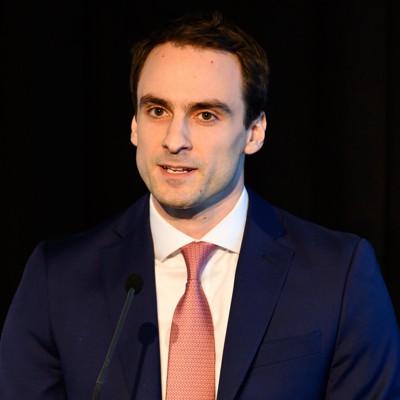- cross-posted to:
- [email protected]
- cross-posted to:
- [email protected]
cross-posted from: https://lemm.ee/post/63196442
Deregulation is also foundational policy. Kratsios said that removing regulations that act as “barriers to innovation” will help foster progress in the technology stack within the U.S.
For the final element of OSTP’s “promote” effort, Kratsios said the widespread adoption of these tech solutions will both catalyze domestic efficiency and set an example internationally.
“We as a country need to be having our great industry at companies, academic institutions and everyday Americans using this technology,” he said. “But also, even more importantly, we need to have the rest of the world running on an AI stack that is ours, that’s American.”
Deploying these solutions within the federal government is also a critical step to promoting U.S. leadership in emerging tech and science realms. Kratsios said that accelerating adoption at a public- and private-sector level, potentially facilitated with the help of the deregulation policies, will help further drive U.S. innovation.
“Those breakthroughs are only really valuable if we actually adopt them and allow the American people to fully realize the benefits of those technologies,” Kratsios said. “But if no one is using it, if the Department of Defense isn’t actually adopting and using it in its stack, if all of our great financial institutions aren’t attempting to leverage those models to drive better services for their customers, it really doesn’t matter.”
He added that the White House is contemplating the idea of creating an “ecosystem of trust” to facilitate adoption of new U.S. technologies.
While the EU is aiming to become the global leader for more ethical and trustworthy AI via improved regulatory laws, Peter Theil protege and current science advisor to president Trump, Michael Kratsios, has again indicated the U.S. is taking the polar opposite approach, and once again emphasized the need for deregulation while attempting to dominate the global AI race.
Although the U.S. previously joined the U.K. and E.U., in September of 2024, signing the first “legally binding” treaty on AI, to ensure use of AI aligns with “human rights, democracy and the rule of law,” the Trump administration began distancing the U.S. from a unified stance on AI regulations, within the first month Trump took office in 2025.
At a global summit in Paris, this past February, the U.S. and U.K. refused to join dozens of other countries including France, China and India, agreeing to an “open”, “inclusive” and “ethical” approach to AI development.
While the U.K. government claimed it did not sign due to concerns over national security and global governance, Vice President J.D. Vance indicated the U.S.refusal was due to concerns over strict regulations, stating it could “kill a transformative industry just as it’s taking off”. Vance vowed that the U.S. would not squander an opportunity to grow AI policies over safety concerns
As Chief Technology Officer during Trump’s first administration, Kratsios would have certainly been involved in the policy and decision making regarding Clearview AI’s controversial facial recognition technology and it’s use by FBI and ICE. In fact, a 2019 interview with Kratsios indicates he opposed the regulation of controversial facial recognition technology.
Given Kratsios previous leadership and dismissal of regulations when promoting what is now recognized as extremely controversial A.I. technology, the Trump administration’s repeated attempts to shift the U.S. away from consensus with the E.U.'s focus on the necessity of regulations, should perhaps alarm any American citizens with their own ethical concerns regarding AI technology, privacy, and human rights.
While Trump has asked Kratsios to utilize AI technology to blaze a trail for America in 2025, it may also be worth noting that just over 5 years ago, in March of 2020, Kratsios was also tasked by Trump to use cutting edge technology to tackle COVID misinformation and track early cases of the virus in the U.S. in order to keep it from spreading..
He added that the White House is contemplating the idea of creating an “ecosystem of trust” to facilitate adoption of new U.S. technologies.
They’ve got a loooong fucking way to go on that.
I know dude this is fucking ridiculous. I’m working on writing a longer blog post about all of this right now. Just to be clear, I’m absolutely positive he does not mean creating trust of citizens/civillians.
He means how does he get private companies, military, or police in other countries to ignore or find loopholes that will allow them to purchase the mass surveillance technology Peter Theil invested in during the first Trump administration and unleashed on law enforcement agencies in the U.S.
I know that they never actually had any sort of ideological stake (bc they never do for any of these issues) when they hijacked the libertarian ideals of “small government,” but I also think that if there is a way to get (at least some) of the Americans (and other countries somehow still thinking this might be fun to try) that somehow don’t see that, it’s through exposing this kind of bullshit.
Those angry farmers in Iowa yelling at Chuck Grassly about that “feller in El Salvador” give me some miniscule hope that even if we can’t stop these people, we can still turn more Americans against them before they turn us all against each other.


